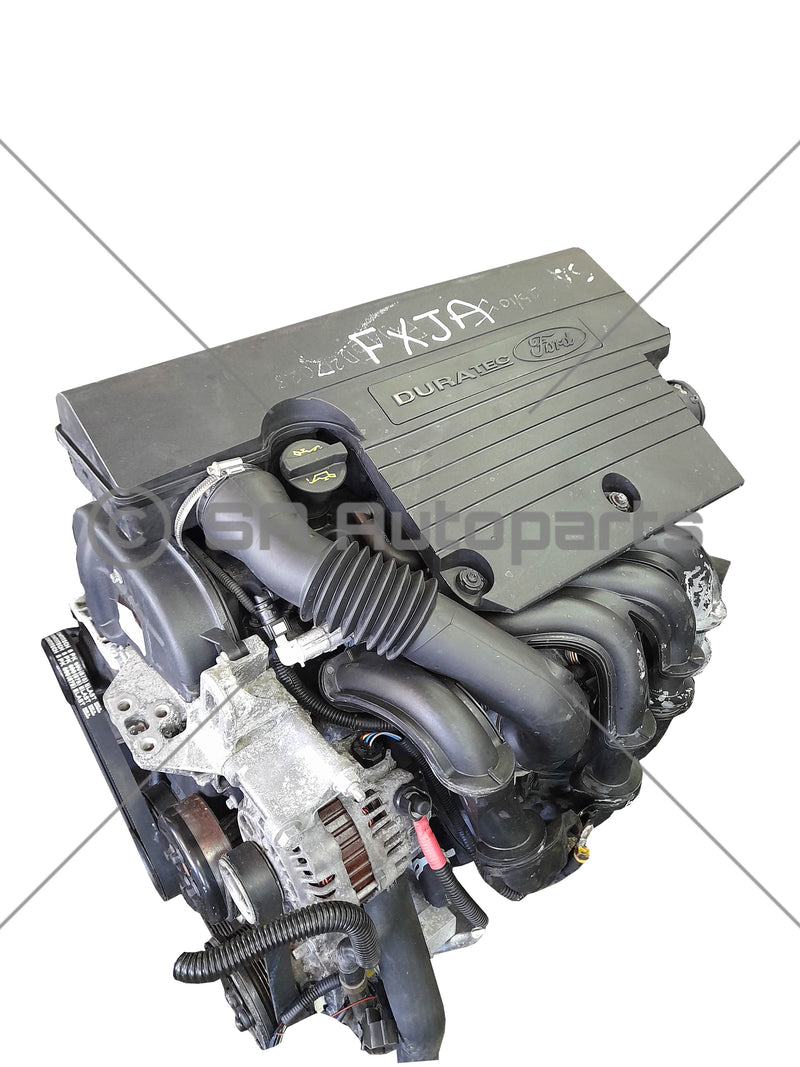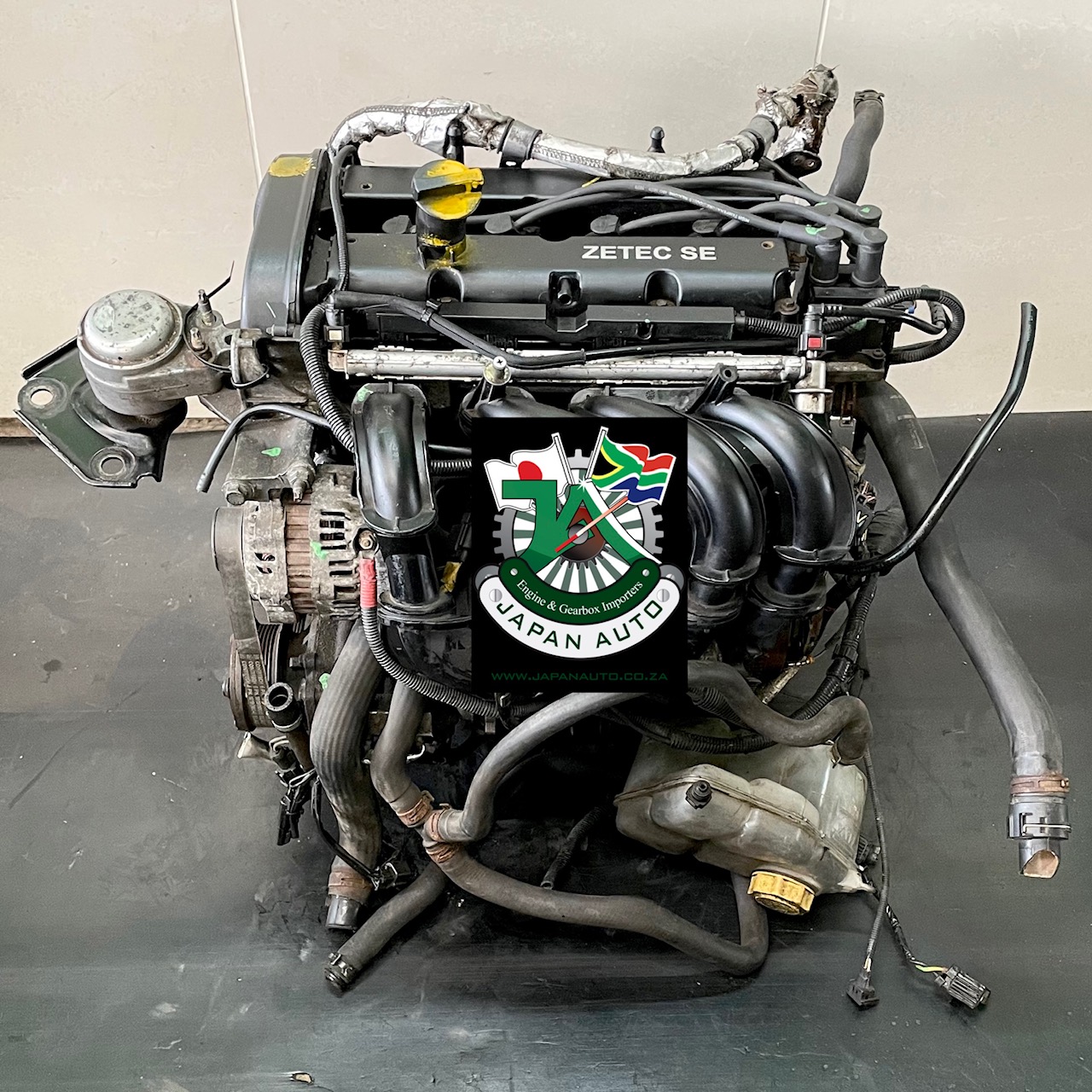How a Well-Maintained Ford Fiesta Engine Improves Vehicle Longevity
How a Well-Maintained Ford Fiesta Engine Improves Vehicle Longevity
Blog Article
The Future of Engines: Innovations Driving Sustainable Power Solutions
As the automotive industry browses the critical transition in the direction of sustainability, the future of engines is significantly defined by groundbreaking innovations. Electric engine innovations, together with appealing growths in hydrogen gas cells and biofuels, are improving the landscape of power services.
Electric Engine Dope
The advancement of electrical engine advancements indicates a pivotal shift in the auto and aerospace markets, driven by the urgent need for lasting choices to nonrenewable fuel sources. This shift is defined by significant advancements in battery technology, power electronics, and electric motor style, which jointly boost the effectiveness and efficiency of electrical engines.
Current advancements have actually resulted in the creation of lighter, much more energy-dense batteries, such as lithium-silicon and solid-state batteries, which assure longer varieties and much shorter billing times. Furthermore, renovations in electric motor effectiveness, such as the usage of permanent magnets and progressed cooling down systems, make it possible for electrical engines to operate efficiently under varying conditions. These enhancements not only boost vehicle performance but additionally add to a decrease in total power usage.
In addition, the assimilation of innovative software application algorithms has actually enhanced energy monitoring in electrical cars, allowing for regenerative braking and predictive billing techniques. As manufacturers increasingly embrace electrical propulsion, the aerospace and automobile industries are witnessing a paradigm change in the direction of greener modern technologies. This evolution not just satisfies regulative needs yet likewise lines up with customer preferences for eco-friendly transportation remedies, solidifying electric engines as a foundation of future sustainable wheelchair.
Improvements in Biofuels
As the vehicle and aerospace markets increasingly focus on lasting energy resources, developments in biofuels arise as a complementary service to electric engines. Biofuels, stemmed from organic materials such as crops, waste, and algae, offer an innovative method for lowering greenhouse gas discharges and dependence on fossil fuels.
Recent study has concentrated on boosting the effectiveness and sustainability of biofuel production. Second-generation biofuels make use of non-food feedstocks, decreasing competition with food supply and lowering ecological effect. Advancements in artificial biology have made it possible for the engineering of microorganisms to create biofuels much more properly, leading to greater returns and lower manufacturing costs.
In addition, the advancement of drop-in biofuels permits seamless integration into existing infrastructure, making it possible for a smoother transition for markets traditionally depending on fossil fuels. ford fiesta engine. These gas can be made use of in present engines without adjustments, promoting their fostering throughout various sectors
Investments in biofuel technology, together with helpful plans, are important to drive innovation and scalability. As the global neighborhood seeks to fight climate adjustment, biofuels use a practical, prompt option that lines up with the overarching objective of sustainability in transport and aviation.
Hydrogen Fuel Cell Modern Technology
A growing number of business and researchers are discovering hydrogen fuel cell modern technology as a viable choice to standard power resources in transportation and power systems. This modern technology transforms chemical energy from hydrogen right into electrical energy with an electrochemical response, with water as the only by-product, making it an eco friendly alternative.
The core of hydrogen fuel cells is the gas cell stack, where hydrogen molecules are split into protons and electrons. The circulation of electrons creates power, while protons move with a membrane layer to incorporate with oxygen from the air, developing water. This process causes high efficiency and reduced emissions, placing hydrogen gas cells as an essential player in the transition to lasting power.
Significant developments have actually been made in improving the resilience and performance of gas cells, together with reducing expenses with cutting-edge manufacturing methods. The growth of hydrogen production approaches, such as electrolysis powered by sustainable energy sources, boosts the sustainability of the general system. As framework for hydrogen refueling expands and production techniques become more reliable, hydrogen fuel cell innovation holds fantastic assurance for decarbonizing different sectors, consisting of heavy-duty transportation and stationary power generation.
Hybrid Equipments and Their Influence
Hybrid systems represent a significant advancement in sustainable engine innovation, merging traditional inner burning engines with electrical propulsion to optimize energy efficiency and minimize discharges (ford fiesta engine). This double approach enables automobiles to make use of both power resources, making it possible for greater flexibility in power consumption and minimizing reliance on fossil fuels

In enhancement to ecological advantages, crossbreed systems use consumers a viable shift in the direction of totally electrical vehicles. They minimize array stress and anxiety by integrating the ease of gasoline with the benefits of electrical propulsion, making them an attractive alternative for a bigger target market. As suppliers spend in hybrid modern technology, the advancement of even more advanced battery systems and lightweight products continues to improve efficiency. Overall, crossbreed systems represent a critical action in the direction of accomplishing sustainable transport and addressing the urgent demand for ecologically friendly power solutions.
The Duty of AI in Engine Style
Leveraging advanced formulas and equipment knowing methods, the auto industry is increasingly incorporating man-made knowledge (AI) into engine design processes. AI boosts the performance and effectiveness of style by assessing huge datasets to determine ideal setups and efficiency parameters. This capacity permits designers to replicate various operating conditions and forecast engine actions under several situations, significantly decreasing the moment and cost connected with typical prototyping methods.
Furthermore, AI facilitates the growth of advanced products and burning processes tailored for sustainability. By maximizing gas efficiency and reducing emissions, AI-driven designs straighten with worldwide initiatives focused on reducing the carbon footprint of auto engines. Artificial intelligence algorithms can likewise forecast upkeep requirements, causing improved dependability and longevity of engine components.
Additionally, AI is crucial in the assimilation of electrification technologies, such as crossbreed systems, where it can maximize battery management and energy recuperation procedures. As the market relocates in the direction of more lasting power remedies, More Info the role of AI in engine look at this website layout ends up being increasingly vital, driving technology and improving the efficiency of future engines. Inevitably, the cooperation between AI and engine design advertises a brand-new period of smarter, cleaner, and extra efficient automotive innovations.

Final Thought
In verdict, the future of engines is being shaped by a merging of cutting-edge technologies that prioritize sustainability. Electric engine advancements, biofuel developments, hydrogen gas cells, and hybrid systems collectively add to a substantial decrease in emissions and ecological effect.
Electric engine improvements, along with appealing advancements in hydrogen gas cells and biofuels, are improving the landscape of power services. Furthermore, improvements in electrical motor effectiveness, such as the usage of permanent magnets and advanced cooling systems, allow electric engines to operate effectively under differing conditions. By optimizing fuel efficiency and lessening exhausts, AI-driven layouts line up with worldwide initiatives intended at reducing the carbon impact of automobile engines. As the sector moves towards more sustainable power services, the function of AI in engine design comes to be increasingly vital, driving technology and boosting the efficiency of future engines. Electric engine innovations, biofuel advancements, hydrogen fuel cells, and hybrid systems jointly add to a substantial reduction in exhausts and environmental effect.
Report this page